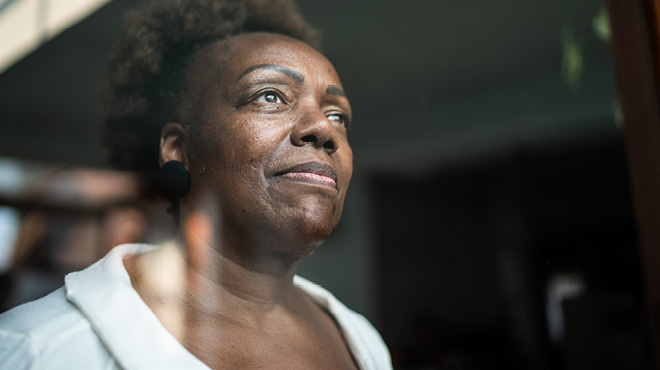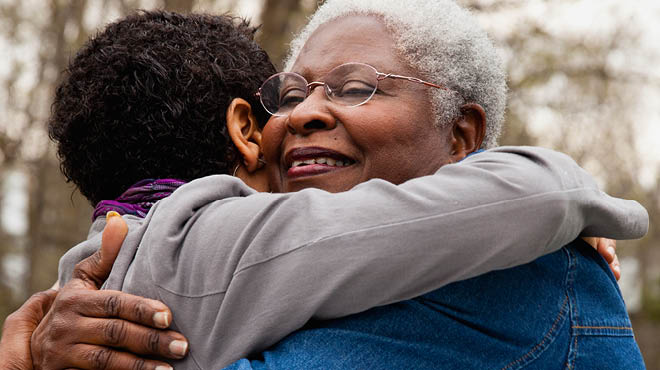Recent Posts
Offering support to the grieving

A traumatic event often causes deep-rooted, profound feelings. Depending on the nature of the event, those feelings may be fear, anger, confusion, sadness or a combination of emotions.
Feelings of traumatic grief are complex and encompass many challenges and reactions — emotional and physical.
This Q&A can help you effectively support someone who is grieving by first understanding grief's nuances.
Q. What is traumatic grief?
After a loved one's death, a period with feelings of sorrow, numbness, guilt and anger can result. This is known as traumatic grief. The death may have occurred from illness, accident or violent act, such as domestic abuse or murder. Experiencing numerous deaths of close family or friends or the death of a child — no matter the age or cause — leads many people into a state of traumatic grief.
Q. How is traumatic grief felt?
Traumatic grief can be felt in the body, such as an increase in sensitivity to sight, sound and touch, as well as a decrease in appetite and sleep changes — inability to sleep and nightmares. Emotionally, those grieving may experience increased aggression or irritation in addition to deep feelings of sadness, guilt or self-blame. Their memory may not be working well, so they forget things, are late for appointments or don't remember details for weeks or months after their loved one's death. People frequently describe their grieving period as a blur or being in a fog. Often, people experiencing traumatic grief feel time moving slowly or stopping altogether.
Q. What should I say?
A person experiencing traumatic grief may become isolated because talking to people is too difficult. Many people offer condolences by saying, "They're in a better place," or "Everything happens for a reason," or "Don't feel guilty," or "It's not your fault." The sentiments are intended to help the bereaved person feel better. However, these statements minimize the person's feelings and don't allow for further conversation. Alternatively, ask questions and create an environment that fosters dialogue.
Q. How can I support a grieving person?
Goals for support include:
- Ensure basic needs are met, but don't force the person to eat, sleep or drink. Let them know those options are available when they're ready.
- Offer a supportive presence, and don't try to fix the situation. Acknowledge their feelings, and avoid telling them not to feel what they're feeling. Prescribing their emotions can result in them no longer being comfortable with sharing. It's OK to feel the feelings.
- For children, answer questions that are appropriate for the age level. If uncertain, consult with the child's parent — if the child isn't yours — for direction before answering. Just like adults, allow children to share their feelings, acknowledge how feel and simply listen. Don't try to fix everything.
- Avoid accelerating the grieving period. Grief knows no timeline and can't be rushed. The loss of a loved one will always be part of them, but as time moves forward, grief may feel differently. For some people, grief may not feel different for many years.
- Allow people to memorialize or remember their loved ones in a manner in which they're comfortable. Funeral rituals, spiritual practices, having a picture in the home, talking about their loved ones, writing a letter to them, lighting a candle in memoriam or scrapbooking are some common practices.
- Seek out a mental health professional if you or someone else needs or wants a professional to process the situation or if there are concerns for safety.
Jessie Wolf is a clinical social worker in Psychiatry & Psychology in New Prague, Minnesota.






